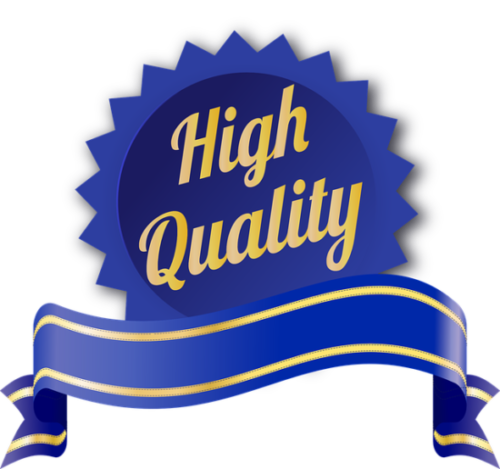
Essential Amino Acids for Living Stronger at Any Age: “Myohealth”
Essential Amino Acids: Getting the Best From Myohealth Challenge
Amino acids are organic compounds that combine to form proteins. Therefore, they are the building units of protein. Consequently, proteins and amino acids are the building blocks of life. That’s why the body needs essential amino acids to live stronger and better at any age while reviewing the Myohealth challenge.
So, when proteins are digested or broken down, they leave amino acids. Naturally, the body uses amino acids so that it can make proteins. Proteins are essential elements of the body. They help in:
- Breaking down food
- Growing
- Perform other body functions
- Repairing of the body tissue
Also, Amino acids can be used as a source of energy, especially when you have high demand and less supply.
Typically, there are 3 groups into which amino acids are classified:
- Essential amino acids
- Conditional amino acids
- Nonessential amino acids
- Essential Amino Acids
This is a group of amino acids that cannot be manufactured by the body. For that reason, they must come from food.
Can’t Wait, Need Access to my Wellness Store Now? (Click Here)
There are 9 essential amino acids. They include the following: methionine, phenylalanine, threonine, tryptophan, histidine, isoleucine, leucine, lysine, and valine.
Nonessential Amino Acids
Nonessential means that the body produces these amino acids. So, it won’t be wrong even if you do not get it from the foods you eat. There are various nonessential amino acids. These include the following: alanine, glutamic acid, glutamine, glycine, arginine, asparagine, aspartic acid, cysteine, proline, serine, and tyrosine.
Conditional Amino Acids
Usually, these are not essential amino acids. However, they are used in times of illness and stress. Naturally, conditional amino acids include glycine, ornithine, arginine, cysteine, glutamine, tyrosine, proline, and serine.
How Much Protein Does A Person Need?
Amino Acids are the building units of protein. On the other hand, proteins are large molecules that the cells need to function correctly. Naturally, the structure and function of the body depend on proteins. And the regulation of cells, tissues, and organs cannot occur without them.
Muscles, bones, skin, and other parts of the body contain significant amounts of protein, which includes enzymes, hormones, and antibodies. Also, proteins work as neurotransmitters. Typically, Hemoglobin — a carrier of oxygen throughout the blood, is a protein.
What are proteins?
These are essential elements required by the body for the proper functioning of the cells. Generally, the body synthesizes some proteins from the foods you eat. Ideally, proteins are long chains of amino acids. They form the basis of all life.
The body consists of about 100 trillion cells. Surprisingly, each cell has different proteins. Ultimately, this causes each cell to do its job. Necessarily, proteins are like tiny machines in the cell.
On the other hand, amino acids can be reorganized in millions of different ways. This is to create millions of different protein strands. Probably, each with a typical function in the body. Consequently, the structure changes based on the sequence in which the amino acids combine.
Amino acids are organic molecules that consist of carbon, oxygen, hydrogen, nitrogen, and at some point sulfur.
As a unit, it synthesizes proteins and other useful compounds in the body. These can be creatine, peptide hormones, as well as some neurotransmitters.
What is the Role of Proteins in the Body?

Proteins play a significant role in almost every biological or metabolic process. However, their functions vary widely. And they remain essential to the body.
Certainly, the primary function of proteins is to build the body. In other words, proteins are a body-building element. It allows growth and development in the body. Protein builds and strengthens the muscles.
This shows that people who take fewer proteins are likely to be weak and with leaner muscles. That’s why most bodybuilders are advised to take a lot of protein to ensure that they achieve their desired target.
Aside from that, proteins repair or replace, worn-out muscles and tissues.
Preteens, youths, and elders tend to lose a lot of tissues. Because they are likely to involve themselves in rigorous activities, which they find capable of straining them. On top of that, they are prone to injuries that may need to heal.
That’s why amino acids, through proteins, become useful elements. Whether it is a wound or just a loss of muscles, proteins are tasked with the role of healing and repairing. There are many other roles played by proteins in the body. Most of them are based on the formation of organs and useful elements in the body. They include the following.
Structural,
The protein plays a structural role. Here is where it forms collagen — any of the more than 28 types of glycoprotein which form elongated fibers, found in the extracellular matrix of the connective tissue.
Hormonal,
Proteins play a significant role in the formation of essential elements such as hormones. It is responsible for the structure of insulin. There are many other benefits of proteins.
These include the formation of carriers, such as hemoglobin.
Also, proteins help in the production of the enzymes, such as amylase
Deficiency
The deficiency comes due to a low intake of protein in the diet. However, it is an unusual condition that can be substantial over time.
The 2015–2020 Dietary Guidelines for Americans insist that at least 10 and almost 35% of adults’ daily calories should come from protein. For the children, it’s between 10 to 30%.
According to the studies done by the Centers for Disease Control and Prevention (CDC), most men in the US get 16.1% of their calories from protein on average. On the other hand, women gain about 15.6%.
However, the deficit — where there is a lack of protein in the diet can be a matter of concern. Probably, this can affects the children. It can lead to conditions such as malnutrition, kwashiorkor, and marasmus… Indeed, these can be life-threatening.
Also, extreme deficiency can arise if one has a health condition, such as:
- Certain genetic conditions
- An eating disorder, for example, anorexia nervosa
- Difficulty absorbing nutrients — irritable bowel syndrome (IBS) and gastric bypass surgery
- The later stages of autoimmune disorders
However, very low protein intake can lead to various conditions, such as the following:
- Weak muscle tone
- Thin and brittle hair
- Skin lesions
- Edema, which is a condition associated with swelling due to fluid retention
- Also, it can lead to loss of muscle mass, especially in adults.
- Aside from that, a low intake of proteins can lead to stunted growth in children.
- Biochemical tests may reveal low serum albumin as well as hormone imbalances.
Indeed, excessive intake of proteins can be unhealthy, just like a low intake of the same. Therefore, while amino acids are useful components of the body, everyone needs the right amount. That’s why Trivita offers the best supplement for you — Myohealth.
Getting the Best From Myohealth Challenge
Product Trivita’s Myohealth
(Click Here Now), For The Latest Prices
Best Place To Buy: Amazon.com
My Ratings: 4.7 out of 5 Stars
Full Refund Available If Now Completely Satisfied
Begin by getting a bottle of MyoHealth. Certainly, TriVita will give you a second bottle—at no cost!
Then proceed to double your dosage (that is two servings in a day) for the first 30 days. Then build up your body as you prove the power of MyoHealth.
Do it every day for 30 days and enjoy your life at any age. That way, you will be able to explore all your experience as you grow stronger every day.
Conclusion
Building strong muscles can be a difficult task, especially when one is aging. Indeed this is the time when people lose muscles as cellular tissue sheds off, without replacement. However, taking the right amount of essential amino acids can be a great way out. Even better, Trivita brings the Myohealth challenge to have you covered every day.
Is The Time Now, For Your Healthier Lifestyle? (Click Here)

This content on the essential Amino Acids to live stronger at any age post has been a real joy in articulating the most relevant knowledge for your better health for today. The goal of our blog is to produce goal-based wisdom for every viewer’s healthier lifestyle.
Perhaps the time is now to engage our health blog. as you are surely a very unique person with so much to offer us all. So don’t hesitate to leave your ever-so-important and heartfelt comments below, for the sake of us all.
I hope to hear from you soon, sincerely, Jack Butler, founder of betterhealthfortoday.com

Antarctic Adventures
thank you for providing this overview on the importance of protein. I have read a lot about essential amino acids and the purpose and how important it is.
However, I some follow up questions. Why does someone need this product instead of ensuring they maintain an adequate diet? What does this product offer me that I can’t find through the nutritious diet I eat?
I would be interested in hearing your thoughts on that!!
Jack Butler
Thank you Antarctic Adventures, Stephen, for your ever so important and heartfelt comments within our better health for today post, as they are a key asset for our site’s ongoing growth potential in so many ways. I hope to hear from you soon, sincerely, Jack
Sherry
Well! This is a great post on the overall because I have often been hearing about this myohealth though this is the first time I will read anything about them. The essential importance of the amino acid to our health’s overall performance is immense and seeing something like this here is really great. Thank you so much for sharing this with us all here.
I will definitely check out more
Jack Butler
Thank you always, Sherry, for your ever so important and heartfelt comments within our better health for today post, as they are a key asset for our site’s ongoing growth potential in so many ways. I hope to hear from you soon, sincerely, Jack